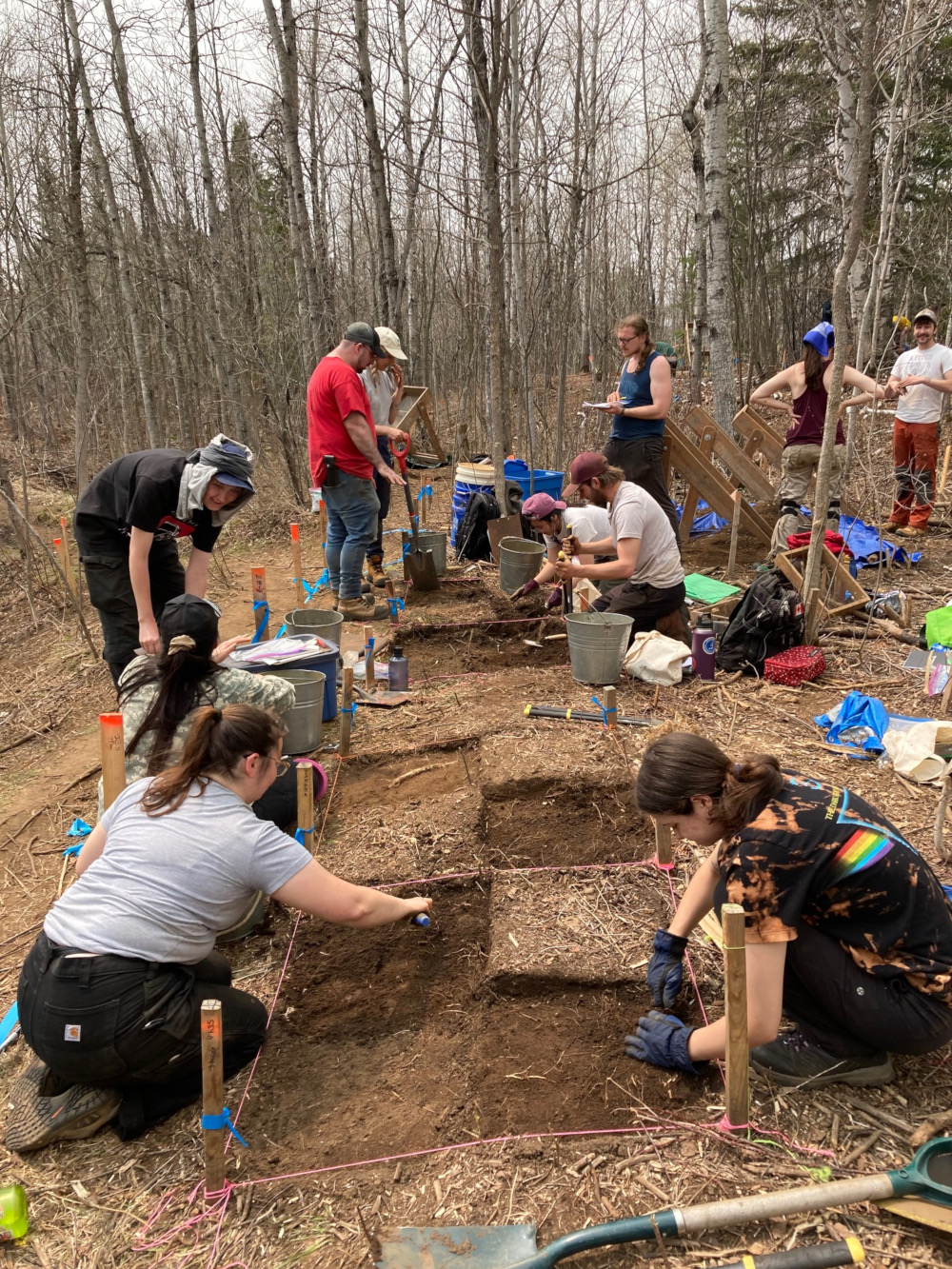June 8, 2023 – Thunder Bay, Ont.
Four researchers and their community partners were honoured at the C2UExpo 2023 Gala Awards dinner held at Fort William Historical Park in Thunder Bay on Wednesday, June 7.
Dr. Scott Hamilton, Professor in Anthropology at Lakehead University, with Dr. Jill Taylor-Hollings, Clarence Surette and Chris McEvoy from Anthropology, and William Dumas, Knowledge Keeper and main author of the book series Six Seasons of the Asiniskaw Īthiniwak, received the Indigenous Research Partnership Award from Lakehead University.
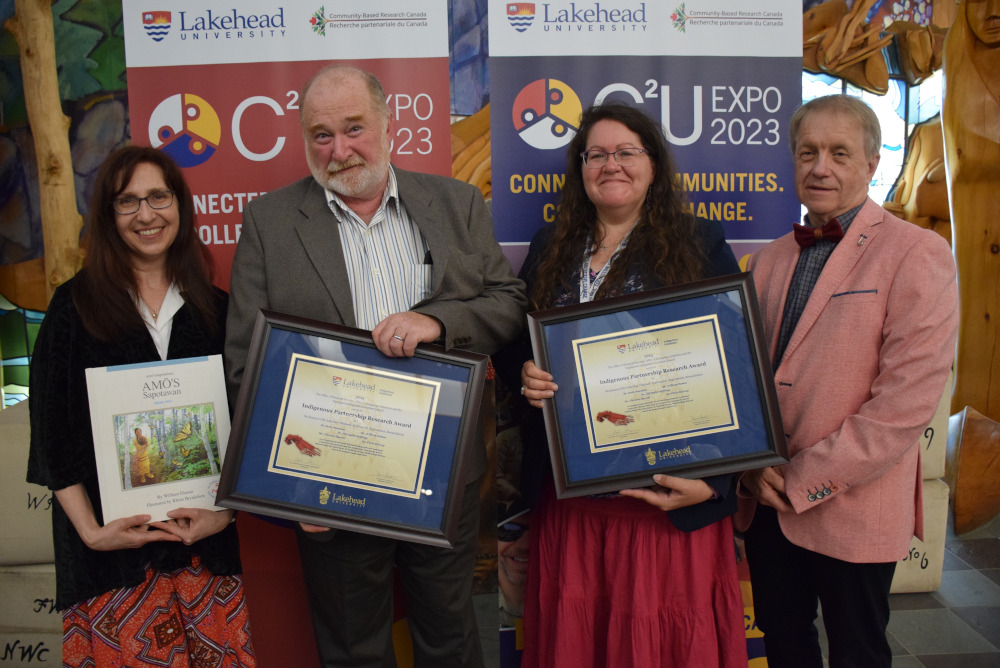
The Six Seasons project is mainly funded by a $2.5 million SSHRC Partnership grant, the major objective of which is to support the ongoing work of reclaiming Indigenous languages, histories, and knowledges among the Asiniskaw Īthiniwak (Rocky Cree).
This research is taking place now in the context of the calls to action by the Truth and Reconciliation Commission of Canada (2015) for, among many other things, the revitalization of Indigenous cultures, the relearning of Canada’s national history, and moving towards reconciliation between Indigenous and non-Indigenous people.
At the heart of the Six Seasons of the Asiniskaw Īthiniwak project is the development of a cycle of historical picture books set during the proto-contact period of the mid-1600s, a series of digital picture book apps that invite players to actively engage the Rocky Cree world, curriculum guides to support the use of both books and apps in classrooms.
The creation of the stories is rooted in archaeological field and collections research, as well as in historical research in archives and the documentation of oral histories held by Rocky Cree knowledge keepers.
A core value of the project is respect for historical and cultural accuracy.
Dr. Elaine Wiersma, Associate Professor in Lakehead University’s Centre for Education and Research on Aging & Health (CERAH) and in the Department of Health Sciences, Dr. Nisha Sutherland, Associate Professor with the School of Nursing, Carlina Marchese, Knowledge Broker from CERAH, and the North West Dementia Working Group received the Community Engaged Research Award from Lakehead University.
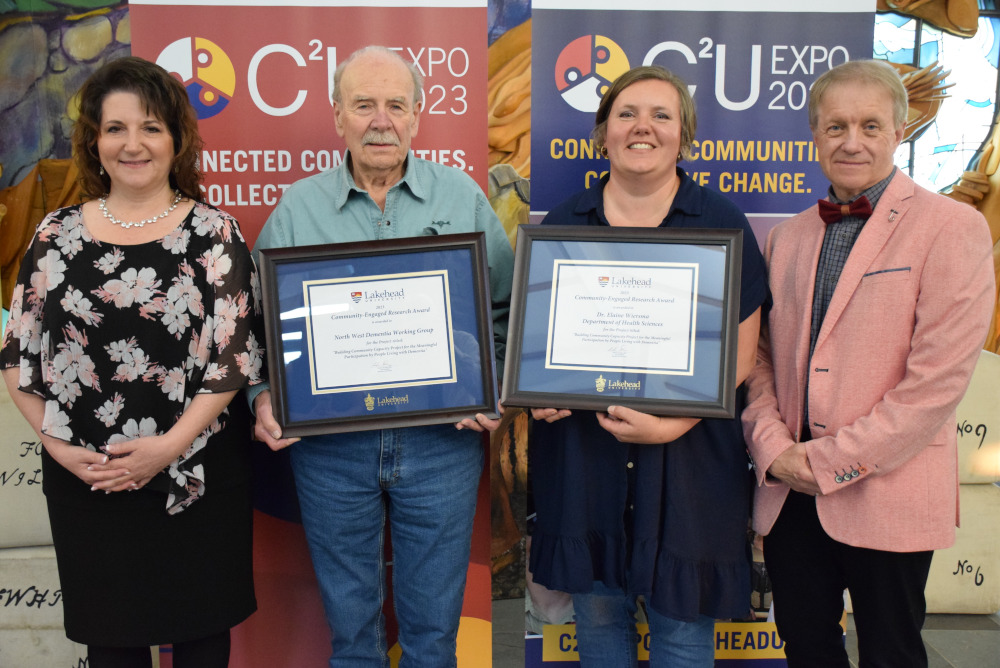
Their research explores building capacity to enable people living with dementia to have meaningful participation in their community.
A diagnosis of dementia can lead to shame, fear, and isolation for people living with dementia.
The stigma that people living with dementia are cognitively incompetent can lead to exclusion, which can be emotionally and physically devastating.
For this project, researchers and community partners, the North West Dementia Working Group, used an asset-based community development approach to identify opportunities to strengthen community initiatives and make them inclusive of people living with dementia.
This project was building on work that has been ongoing since the inception of the North West Dementia Working Group in 2014.
The objectives of the project were to integrate and grow community initiatives that are inclusive and meaningful for people living with dementia, to evaluate the processes of building community initiatives, and to increase awareness of the impact of the stigma associated with dementia.
Community-Based Research Canada presented the Excellence in Community-Campus Research Partnership Award to Dr. Ruth Beatty, Associate Professor in the Faculty of Education at Lakehead University; Christina Ruddy from the Algonquins of Pikwakanagan First Nation; and Colinda Clyne, Anishinaabe kwe, Kitigan Zibi and Coordinating Principal of Indigenous Education for the Upper Grand District School Board.
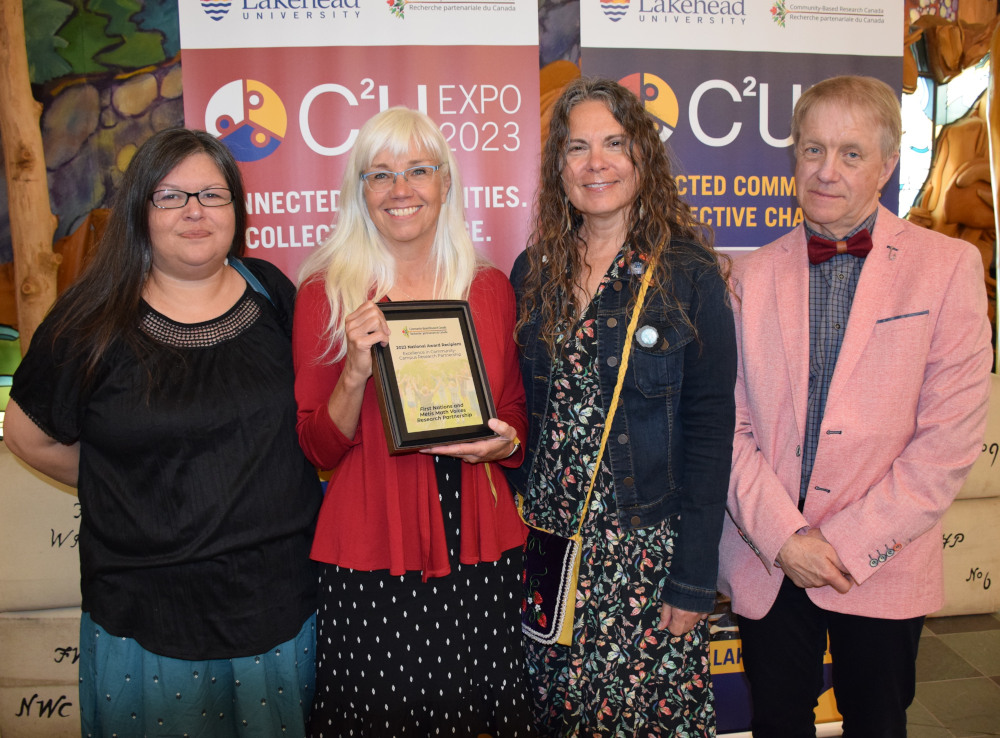
Their project began in 2012 when research teams comprising Anishinaabe and Métis leaders, artists, and educators, as well as non-Indigenous educators, began working to explore connections between Anishinaabe or Métis cultural practices and the mathematics inherent within these practices.
These projects, known collectively as “First Nations and Métis Math Voices,” have taken place in different community settings that are varied in terms of contexts and participants.
Community partners developed deep understanding of complex mathematical concepts, which strengthened their awareness of the place mathematics has in Indigenous culture and strengthened their own cultural and mathematical self-identities.
These teams have built on their self-reflexive experiences and have become co-applicants on two SSHRC Connection Grants; co-planned an Indigenous Education and Mathematics Conference for 200 participants at Lakehead University’s Orillia Campus in 2019, a second virtual conference in April 2022, and held a face-to-face conference in April 2023.
They have co-authored journal articles and book chapters, have co-presented at provincial, national, and international academic and practitioner conferences – including keynote sessions.
Dr. Krystal Kehoe MacLeod from the University of Ottawa received the Emerging Community-Based Researcher Award from Community-Based Research Canada.
Dr. Kehoe MacLeod is an emerging health services researcher focused on issues related to health equity – to help improve care and health outcomes for older adults, specifically those belonging to marginalized and/or minority communities.
She is currently leading six community-based research projects. Dr. Kehoe MacLeod has received $371,000 in research grants as the Principal Investigator/Acting PI/Co-PI.
In each of these projects, Dr. Kehoe MacLeod is working in close collaboration with community groups and knowledge users to consider various timely and relevant issues in health care for vulnerable populations (e.g., older adults, historically marginalized groups, people living with dementia, and caregivers from linguistic and ethnocultural minority groups).
In her ongoing postdoctoral work, Dr. Kehoe MacLeod is developing an independent program of community-based participatory research focused on the intersections of food security and public health.
She is also working on developing a new project in collaboration with community partners to co-design and pilot test an electronic medical records-linked food insecurity screening tool for patients from vulnerable groups in Carp and the surrounding area.
“Congratulations to all of the researchers who were honored at tonight’s awards ceremony and thank you to everyone who participated in C2UExpo 2023,” said Dr. Andrew P. Dean, Vice-President, Research and Innovation, at Lakehead University.
-30-
Media: For more information or interviews, please contact Brandon Walker, Media, Communications and Marketing Associate, at (807) 343-8110 ext. 8372 or mediarelations@lakeheadu.ca.
Lakehead University is a fully comprehensive university with approximately 9,700 full-time equivalent students and over 2,000 faculty and staff at two campuses in Orillia and Thunder Bay, Ontario. Lakehead has nine faculties, including Business Administration, Education, Engineering, Graduate Studies, Health & Behavioural Sciences, Law, Natural Resources Management, Science & Environmental Studies, and Social Sciences & Humanities. Lakehead University’s achievements have been recognized nationally and internationally, including being ranked in the top half of Times Higher Education's 2023 World Universities Rankings for the fourth consecutive year, and the number one university in the world with fewer than 10,000 students in THE’s 2022 Impact Rankings (which assesses institutions against the United Nations’ 17 Sustainable Development Goals). Visit www.lakeheadu.ca.



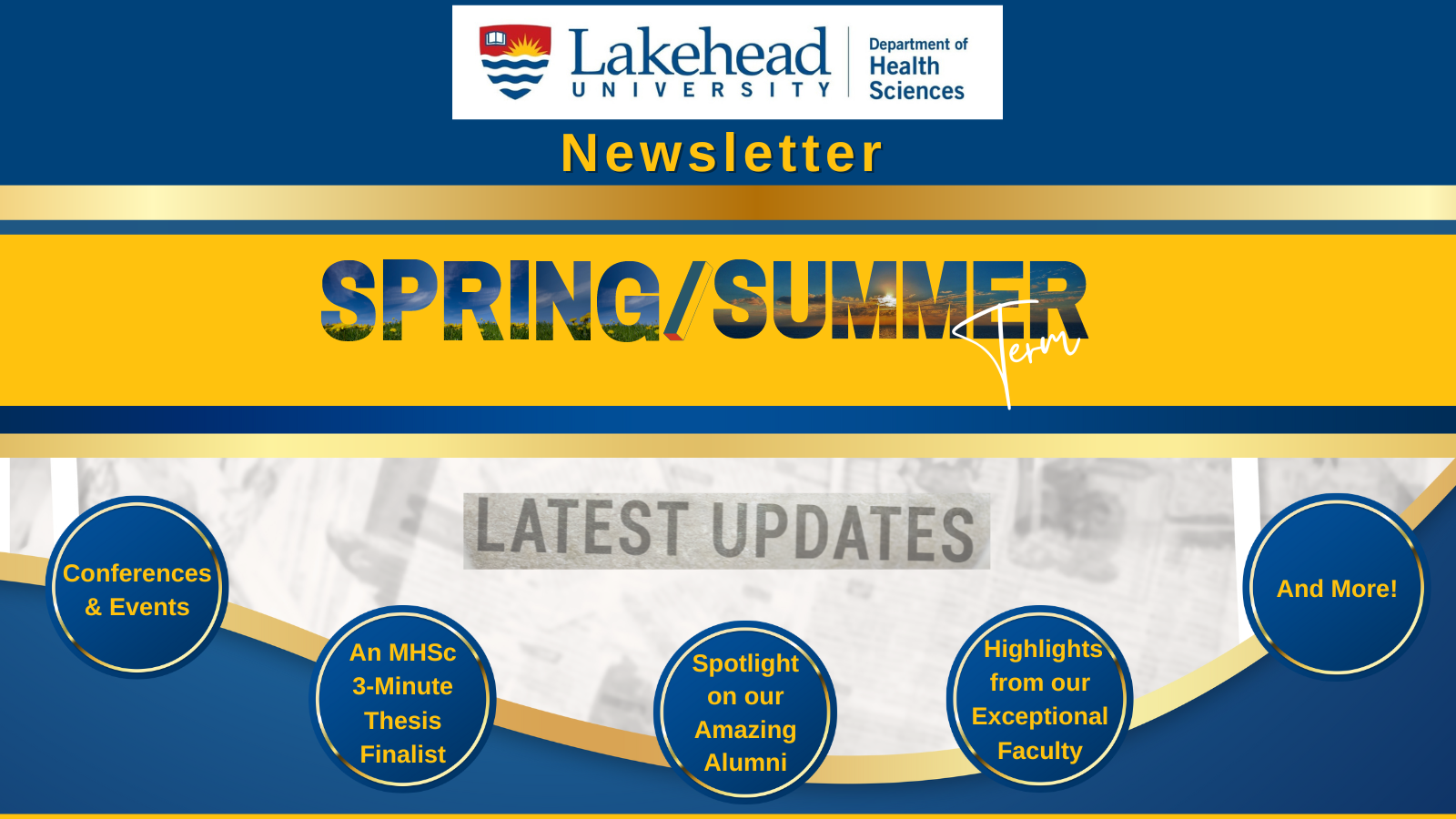
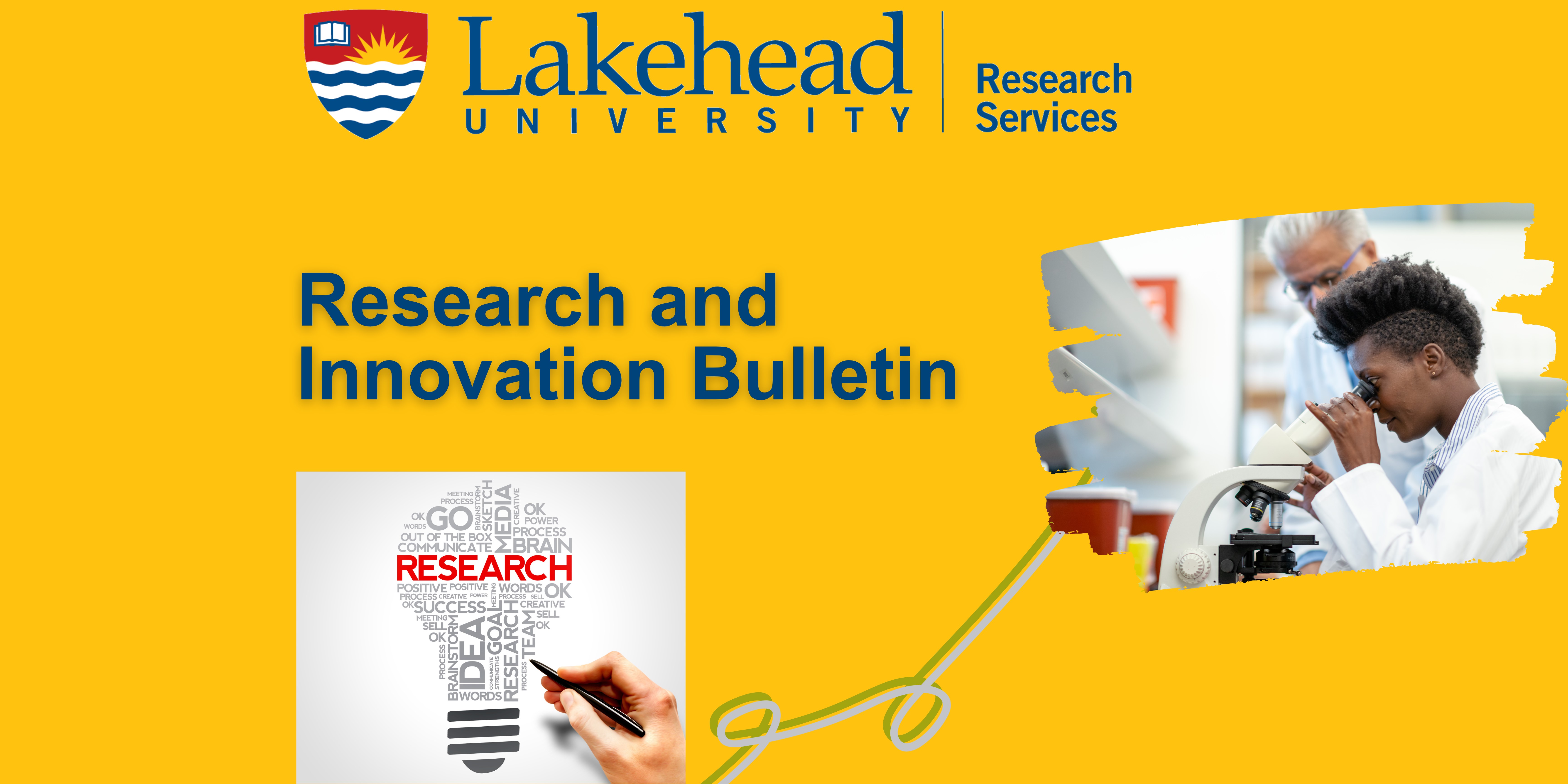
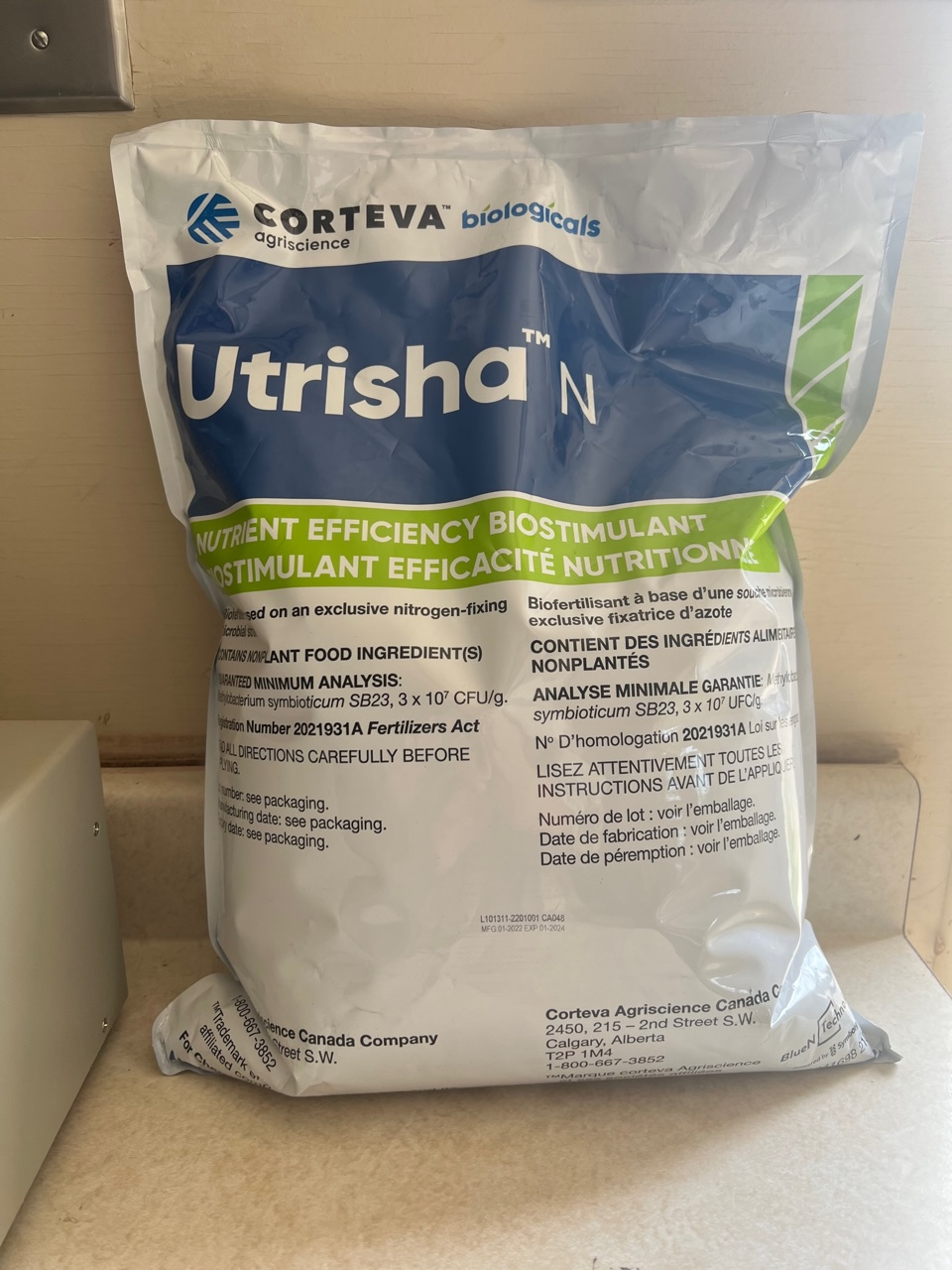
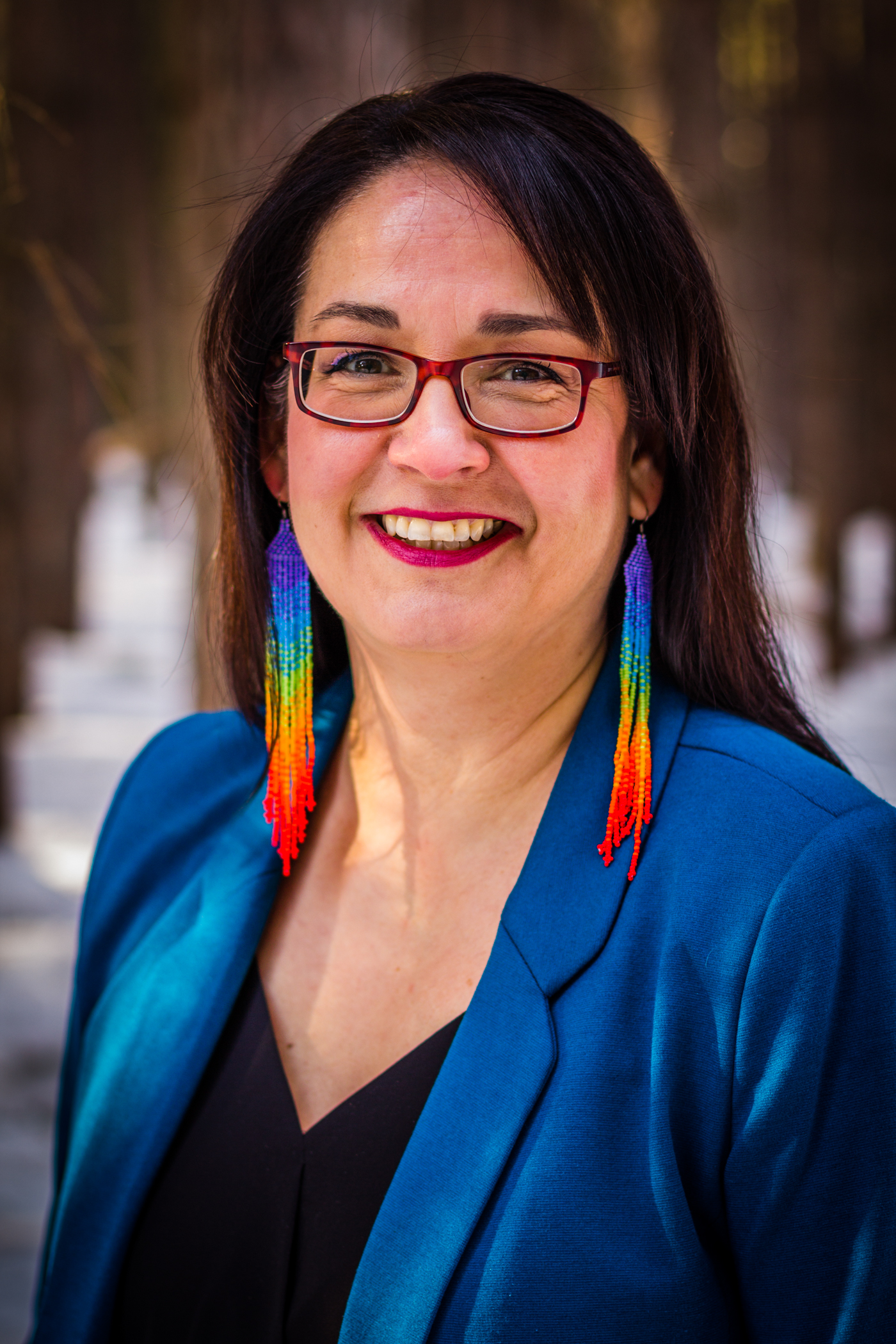 Lakehead University’s Holly Prince has been selected to receive the Inclusion Vanguard Award at the annual Canadian Equity, Diversity, and Inclusion Award Ceremony on June 1 in Toronto.
Lakehead University’s Holly Prince has been selected to receive the Inclusion Vanguard Award at the annual Canadian Equity, Diversity, and Inclusion Award Ceremony on June 1 in Toronto.